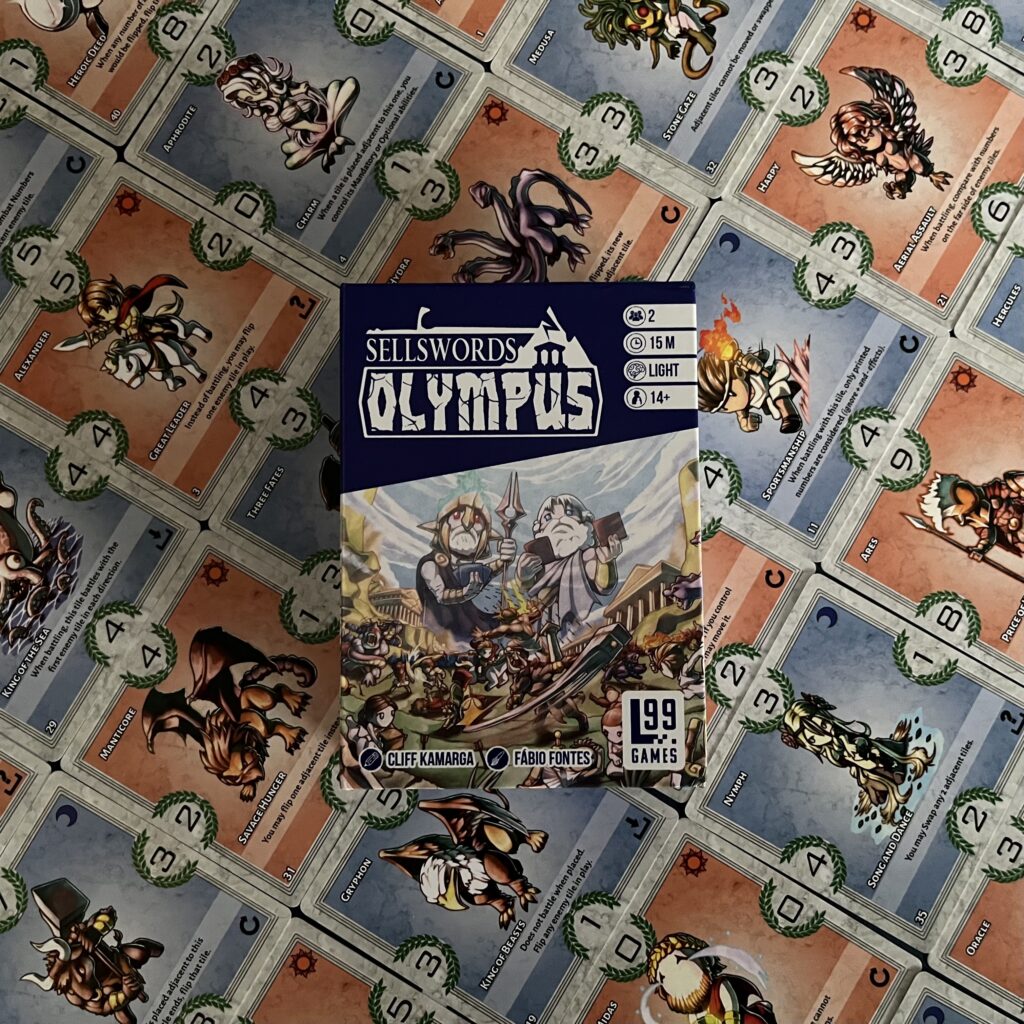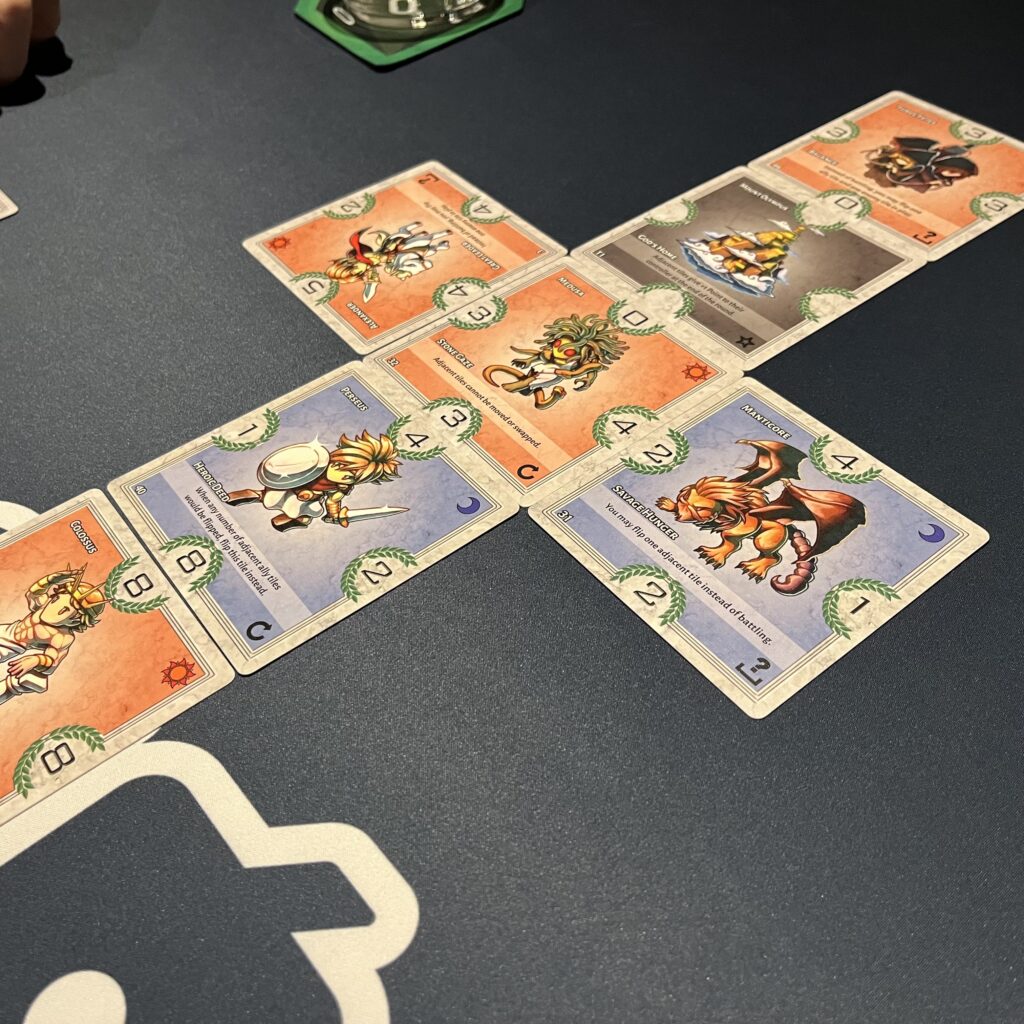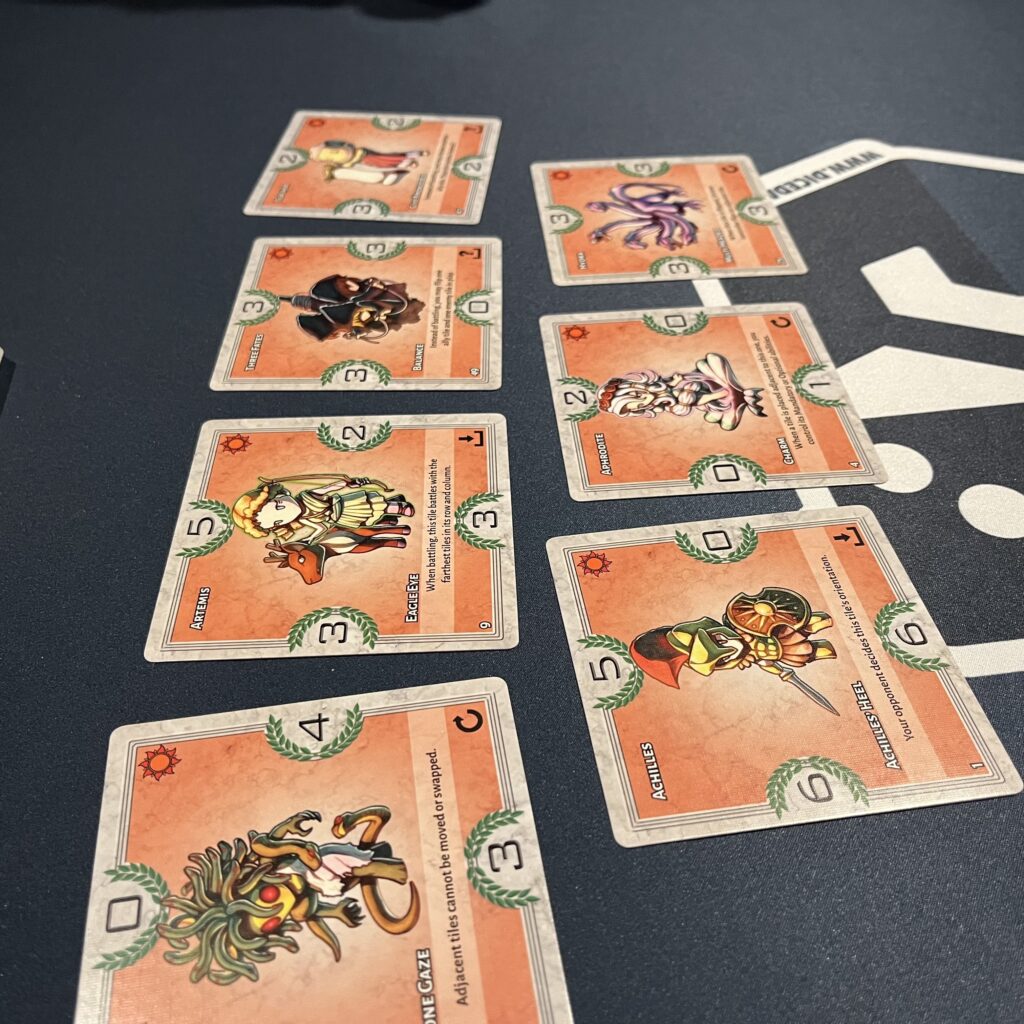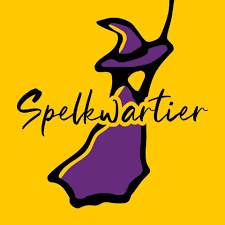The gods of Olympus have once again started a war and gone to battle. Typical. The common people always suffer and are doomed to choose sides. Skilled warriors (including philosophers and monsters) from all over the Hellenistic regions are summoned to fight. Two players compete against each other to gather the best heroes and become champions of Olympus.
Philosophers of Olympus
Sellswords: Olympus is a reissue of the 2017 game of the same name. The game is compact, has deluxe packaging with a magnetic flap to close the box and contains high-quality cards. A nice reprint, so to say. Sellswords: Olympus, by the way, is in itself an adaptation of an earlier game by author Cliff Kamarga, Sellswords.

Players pull Hades and Persephone from the underworld, yank Spartans away from their mothers, tame the biggest monsters similar to Hercules, but in addition they engage in (legal) philosophical discussions with Socrates. Coincidentally, the character Theseus and his best friend the Minotaur are also in the game.
Theseus is also the subject of a philosophical thought experiment. If you refurbish an object, say a ship, so often and replace (almost) all parts of it in the long run, has it still retained its original identity or should it be considered to be new ship all together? Perhaps it would be fun to apply this thought experiment to reissues and reprints of games. Is it still the same game if all parts have since been replaced? I think it is safe to say of Sellwords that it has retained its identity, but philosophize away as far as other game reissues are concerned.
Sellswords of Olympus
In Sellwords: Olympus, players engage in two rounds of collecting heroes, monsters, and figures from Greek Mythology, legends, and history to gain control of rows and columns of a five-by-five card grid.
During a round, seven cards are placed face-up on the table twice. Players take a card in hand each time until they both have three cards. The seventh card goes back into the box. Again seven cards are placed face up and again the cards are dealt until each player has a total of six cards.
The six collected cards players will puzzle together on the table. At the beginning of the game, one of the location cards is placed to make the beginning of the grid. Players take turns placing cards. Cards they initially place in their own color, but during the game, cards will frequently rotate to the other color and back. The goal is to gain as much control over rows and columns as possible, because the more cards in a row or column the more points.


Each card has four combat values. When you place a card they basically start fighting with adjacent cards (orthogonally) in the other color. If you manage to beat other cards after placing them you may turn them over. Please note that all cards have special properties that significantly affect the course of the game. Some properties are optional, some properties are applied when the card in question is placed, others are continuous and there are even properties that affect the scoring at the end of the game.
Conclusion
Sellswords: Olympus is a fast paced game. After two rounds of collecting and placing, the game is over. Game flow is clear and simple, but the challenge is in the puzzle of placing cards and activating properties. Players try to match their cards and know what cards their opponent has in hand, but not how the opponent will use them. When placing, of course, you try to turn over (flip) as many of the other player’s cards as possible while also protecting as many of your placed cards as possible. Flipping fun game.



